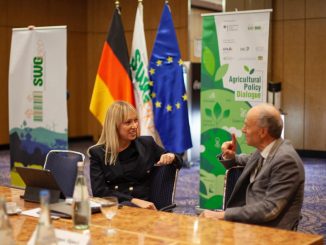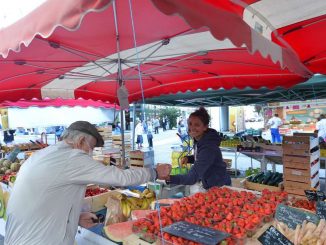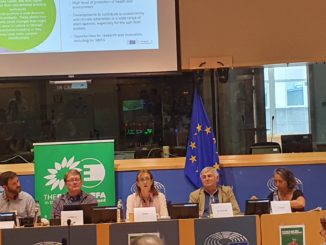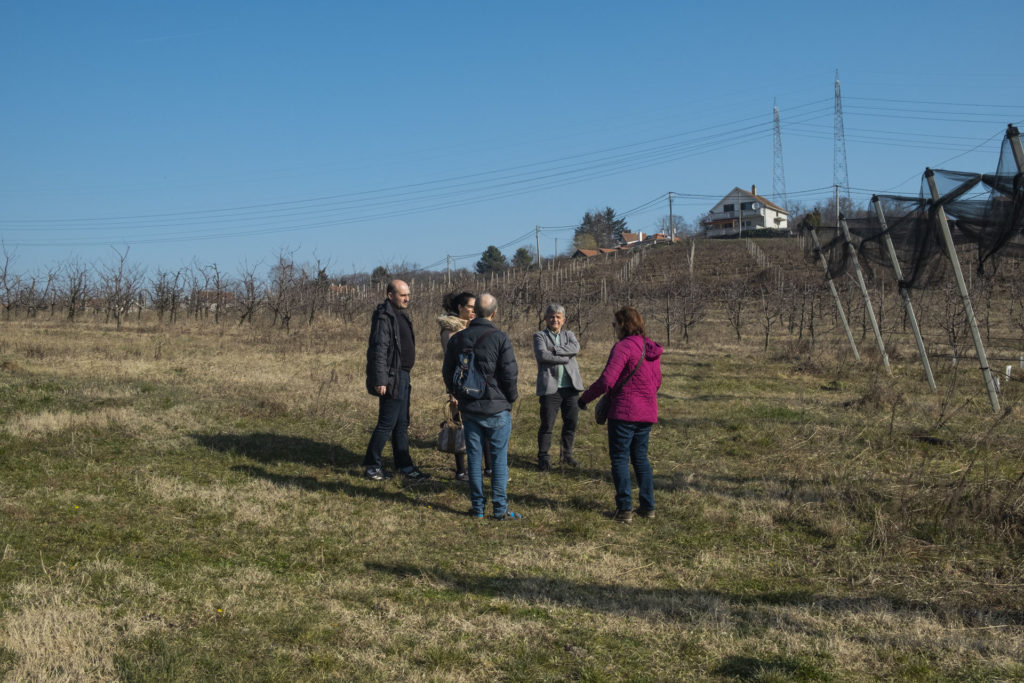
By Adèle Pautrat and Mathieu Willard
Inaugurating the 2023 programme of field visits, Adèle Pautrat, coordinator of the Seeds4all project, and Hannes Lorenzen, President of the ARC2020 association, travelled to Belgrade, Serbia, in February and met several members of the Balkan Seed Network: Gordana Djurić (Alica Foundation, Bosnia-Herzegovina), Kostas Koutis (Aegilops, Greece), Ivana Radović (Ecological movement Frame of Life, Serbia) and Lavdosh Ferruni (Organic Agriculture Association, Albania).
We were hosted there by Ivana and Aleksandar Radović whom we thank warmly for their generous hospitality and enthusiasm in introducing us to Serbian history, cuisine and music, making our stay so special.
Three days of on the ground visits, brainstormings and discussions have been used to shape the launching of a long-term partnership between both our organisations, which will aim at promoting seeds and crop diversity as fundamental components for sustainable food systems and inspire appropriate policies for seed diversity, both in the Balkan region and in the European Union.
This first analysis introduces a series of articles to come in the following months, which will give voice to a diversity of actors committed to agrobiodiversity in Serbia, Bosnia-Herzegovina, Albania, Greece and Macedonia, and will attempt to accompany the emergence of an inspiring narrative for the implementation of a sustainable seed and agri-food policy in the Balkans.
A new regional network to meet the challenge of agrobiodiversity
Established as an informal platform in 2021, the Balkan Seed Network (BSN) seeks to promote the conservation and sustainable utilisation of plant genetic resources in agriculture by fostering multi-sector collaboration within the resilient food system movements in the Balkans. Through these collaborations, the BSN aims to safeguard and promote the region’s abundant biodiversity and shared social, cultural, and agricultural heritage while addressing the diverse needs of local communities.
The BSN is composed of a diverse group of individuals and organisations operating in the Western Balkans, including seed savers, breeders, scientists, farmers, gardeners, research institutes, educational centres, and various associations. Together, these members are committed to working collaboratively towards the movement’s goal of food sovereignty for the collective benefit of farmers and consumers.
The BSN was established within a new context for the Western Balkans region. In 2020, the Sofia Summit endorsed the Green Agenda for the Western Balkans (GAWB), an extension of the EU Green Deal that outlines several roadmaps, one of which focusing on achieving sustainable agriculture and food supply, as well as protecting nature and biodiversity in the region. The GAWB serves as a blueprint for possible measures to be adopted jointly by the EU and each of its Western Balkan partners, based on existing political and technical cooperation frameworks.
The specific agricultural situation of the Western Balkan region
The Balkan region is a hotspot of agrobiodiversity. Crop systems are still built on a broad range of divergent local and autochthonous plant varieties, partly protected from loss by the predominance of small-holder farmers, extensive agricultural systems, in-situ conservation, and living rural communities with essential skills. Unlike the rest of the EU, the Balkans have yet to experience the full impact of industrialisation on their agri-food systems. Lavdosh Ferruni, from the Organic Agriculture Association of Albania, notes that the Balkans have suffered far less loss of agrobiodiversity than other regions. He links this primarily to the survival of farming and food production practices based on the preservation, use and share of local genetic resources. These practices have been embraced not only by farmers but by rural communities at large.
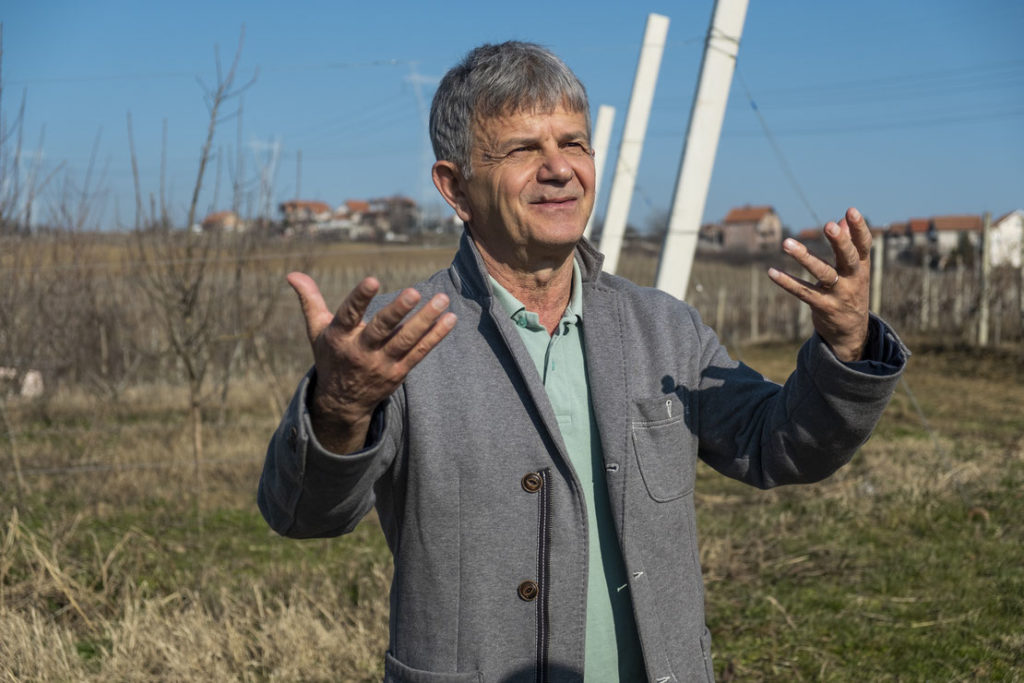
Nearly half of Albania’s population resides in rural areas, with the great majority of them being one way or another involved with agriculture and food production. In parallel, Albania’s agricultural landscape is dominated by small-scale farms. This is a sign of success, particularly in terms of caring for the environment, managing genetic resources and maintaining soil fertility.” says Lavdosh Ferruni, of a situation that can be observed in most Balkan countries, and represents a great richness to protect and value, in terms of material (seeds) and know-how (intangible heritage). However, multiple threatening factors are already putting this value at risk, incl. rural depopulation, insufficient multi-sectoral cooperation, and mounting pressure from industrial actors on land grabbing and extractive resources use.
As we’ve explained above, the adoption of the GAWB provides a prime opportunity to urge Balkan governments to implement policies promoting sustainable rural development. The current roadmaps do not adequately address the issue of seed diversity though, yet a central element for building sustainable food and agricultural systems, as well as protecting biodiversity and ecosystems. Key alternative actors, such as the Balkan Seed Network, must therefore play a central role in advising and supporting policy makers to prioritise seed diversity in future rural development legislation.
“We need short delivery chains to get rid of the restrictive industrial criteria for breeding varieties” – Ivana Radović, scientist and member of the Serbian Ecological movement Frame of Life.
Echoing the context of the EU, which is itself engaging in reforming its seed marketing rules, the implementation of rural development and agrobiodiversity management policies in the Balkans must at all costs avoid mirroring the legislation followed by the EU over the last sixty years. The restrictions on the exchange and use of seeds that it has imposed in connection with objectives of productivity and industrial competitiveness, have proven to be a failure in terms of the autonomy of farmers and the improvement and adaptation of genetic resources to ongoing climate change and biodiversity loss. Growing demands in food security and better access to local food depend on more diverse systems that value capacity building and sustainable practices at the local level. Find the full interview here.
European Union x Western Balkan region at legislative crossroads
In this sense, the reform of the EU seed marketing legislation, which was initially due to be presented on June 7 but has been postponed with the proposal for the deregulation of GMOs, must be considered as an opportunity to highlight the issue of seed biodiversity in the Balkans. Balkan voices should be taken into account in debates at EU level; highlighting the potential of agrobiodiversity in their region, calling for cooperation and exchange of expertise on this topic, and suggesting specific, sustainable adaptations relevant to the challenges of both the Green Deal and the Green Agenda.
In a previous article, we’ve analysed the potential improvements that should be included in the upcoming EU Commission’s proposal to revise seed marketing law. It can be expected that most restrictions on the marketing of conservation varieties will be lifted, that the access to Organic Heterogeneous Material will be widened and that exchanges in kind between farmers will be allowed under light conditions.
Nevertheless, we can already feel that cultivated biodiversity and small-scale initiatives walking away from the intensive-chemical-monoculture model, keep being considered as niches or secondary systems to be eventually supported. We call upon the Commission and the West Balkan ministries for Agriculture and Rural development to recognise the important role of seed savers, researchers, farmers, local communities and food councils to contribute to the objectives of the Green Agenda and the Green deal by setting up support structures with reasonable budgets in order to make farming and food supply more resilient to growing challenges.
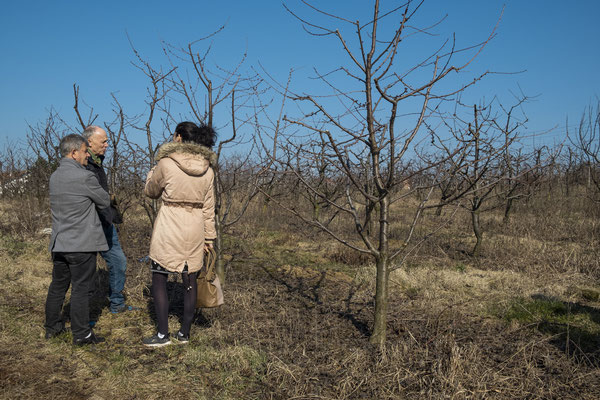
Words from the network: Kostas Koutis on patents and seeds
At EU level, the reform of seed legislation is being politically attached to another important legislative framework which might undermine the above mentioned objectives. It is expected that improvements foreseen for EU seed marketing regulation could be undermined by deregulating the existing GMO regulation and the transparency of seed breeding methods and their marketing. The future legislation could potentially establish rules and criteria for the marketing of so called new GMOs which will not be identifiable or labelled as such. Especially the organic farming sector might lose credibility if such legislation would be passed by EU legislators.
If GMOs are deregulated, it will lead to patents in agriculture and further entrench the industry’s control over food production. In Belgrade we discussed this with Kostas Koutis, founder of Aegilops and member of the Balkan Seed Network. He proposes three main approaches to oppose that model.
1. Knowledge sharing and sensitization
“It is crucial that rural actors maintain their ability to generate knowledge. Farmers are the pioneers and developers of agricultural practices. No gene bank can preserve and collect as many landraces as farmers can. They possess the power and can leverage this advantage. But there is a need to sensitise and protect farmers in the process of sharing their knowledge and the fruit of their work. To be able to collaborate with various actors while protecting farmer’s knowledge is essential.”
2. Flexibility to fight climate change
“Farmers have other arguments to put forward than the sole desire to avoid patents. Their expertise allows them to optimise the evolution of seeds, giving them a powerful tool to address the challenges posed by climate change. Unlike the industry, which often pursues long-term, one-dimensional projects, farmers have the ability to quickly adapt plant materials to suit specific ecosystems and climates. The use of farmer’s seed systems is the best way to maximise flexibility and ensure food security. The industry’s biggest weakness lies in its inability to rapidly adapt to changing environmental conditions, which is where the flexibility of farmer’s seed systems comes in. It’s not that GMOs are inherently evil, but rather that they are limited in their ability to adapt quickly.”
3. Collective responsibility
“The responsibility for ensuring the continuous adaptation of genetic resources and the resilience of our agri-food systems is collective. The entire community, including citizens, politicians, NGOs, farmers, industrialists, and researchers, should take this responsibility to heart. Everyone should be involved in creating a new paradigm that relies on locally-sourced agrobiodiversity.”
Paradigm shift and common vision
In conclusion, we see a risk that governments in the Western Balkans might simply copy what is proposed by the EU Commission for their own national seed legislation. This could jeopardise the good structures and initiatives already present in the region.
Rural communities in the Balkans have strengths that must be safeguarded and promoted. There is a general awareness on the need to preserve agrobiodiversity, as expressed through the emergence of regional dynamics such as the Balkan Seed Network. These dynamics are needed, they should be supported and included in future discussions, as sources of innovation. In that context, it is important to rely on and draw inspiration from the many local initiatives already contributing to the preservation and enhancement of agrobiodiversity.
Now is the time for a paradigm shift. The Western Balkan countries could even lead the way referring to the Green Agenda and set an example for the EU to follow.
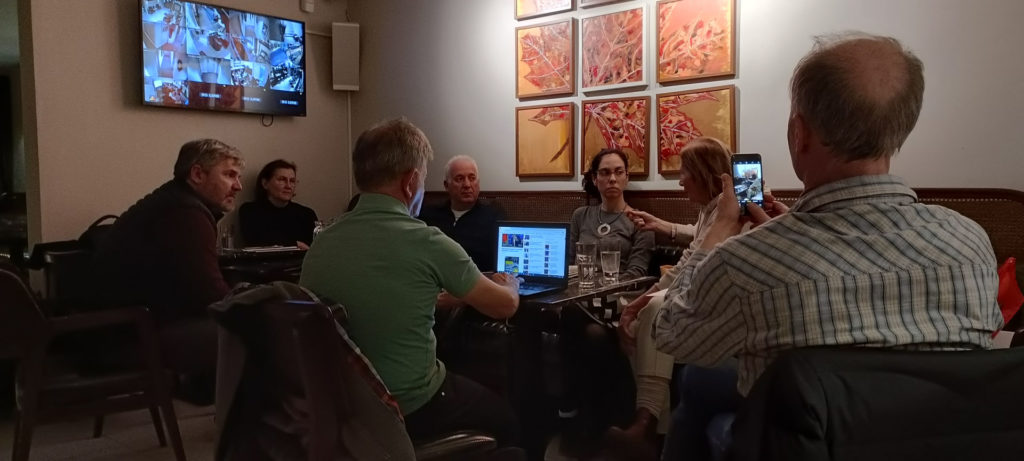
The Balkan Seed Network and the Seeds4All suggest action in the West Balkans which are:
- Be innovative and ambitious, leading the change and not repeating the same mistakes as the EU, whose current legislation has proven its shortcomings;
- Protect the rights and the access of all to resources, avoiding systems that restrict the development of crop biodiversity by placing it in the exclusive hands of the industry;
- Strengthen the rural population, investing in rural development and resilience, providing opportunities and better social and economic infrastructure for rural communities;
- Enhance a participative approach, empowering civil society in designing legislation and contributing to the preservation and enhancement of agrobiodiversity;
- Facilitate cooperation, fostering the connections at national and regional levels between multiple stakeholders – farmers, breeders, scientists, civil society organisations, etc.
For these recommendations to be heard and supported, we need the emergence of a strong critical mass at inter-regional level advocating for agrobiodiversity. The Balkan Seed Network was built for that purpose and its partnership with the Seeds4All project shall primarily aim at strengthening its actions, giving it more visibility, connecting it to an agro-ecological system approach and amplifying its impacts towards decision makers and civil society.
More
Irish Tour part 1 – Agrobiodiversity as a Key Driver for Rural Revolution
Organic and Biodynamic Viticulture: Adapting the Vine in a Changing Climate



